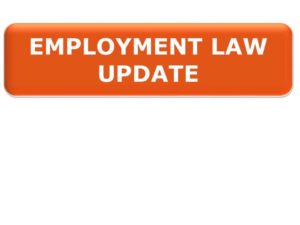
Are Zero-hours workers entitled to remuneration during a period of suspension?
Tuesday 26th October 2021
During a period of suspension, a zero-hours worker may not be entitled to be paid, as was held in the case of Mr A Agbeze v Barnet Enfield and Haringey Mental Health NHS Trust.
Facts and Decision
In this case, Mr Agbeze issued a claim against Barnet Enfield and Haringey Mental Health NHS Trust for an unlawful deduction from wages following a period of suspension where he had not been paid. Agbeze was under a zero-hours contract with the Trust and argued that there was an implied term in the contract which required him to be paid an average wage during any period of suspension, if the Trust would otherwise have had work available for him during this time.
The Employment Tribunal dismissed his case and Agbeze appealed to the Employment Appeal Tribunal.
The Employment Appeal Tribunal dismissed the appeal, referring to the fact that there was no obligation on either the Respondent or the Claimant to provide/perform work under the agreement. A key provision of the agreement was that the Claimant would receive remuneration in accordance with the duties carried out, whilst providing services to the Respondent.
The fact that there was no express term that any periods of suspension would be unpaid was not deemed to be significant by the Tribunal. Other provisions within the agreement made it clear there was no underlying right for the Claimant to be paid unless carrying out work for the Respondent which, as he was suspended, he was not.
Despite this, we would always advise including an express provision within a zero-hours contract, or associated disciplinary policy, making it clear that any periods of suspension would be unpaid.
The same principle should not, however, be applied to non-zero-hours workers. As other employees have a contractual right to be provided with work, not paying them for periods of suspension is likely to be considered an unlawful deduction from wages because, for example, it is applied before any misconduct has been established by a fair disciplinary procedure.
For further advice please contact one of our employment law experts below.
To view the full October Employment Law Update, click here:




